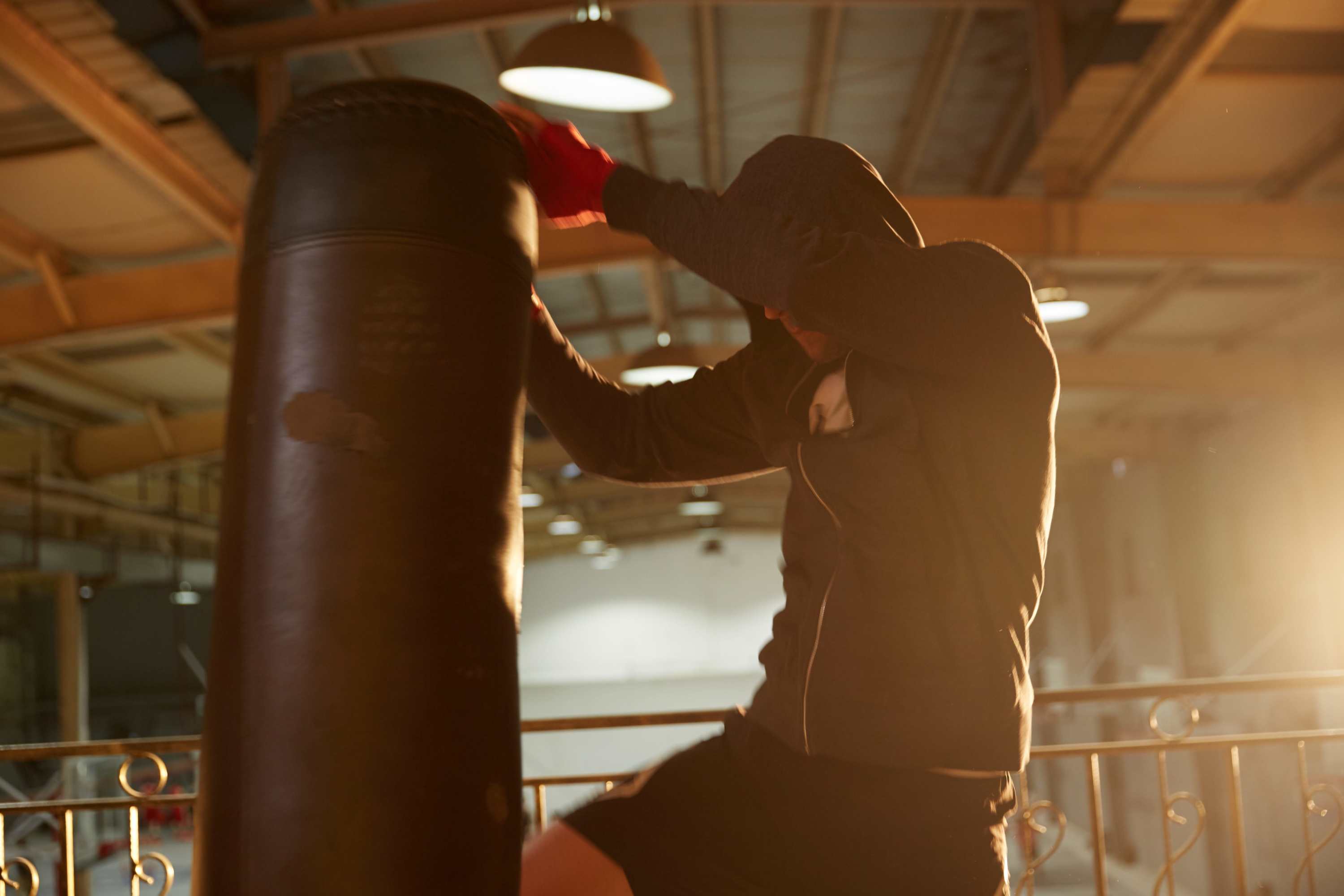
CLAIM YOUR book your free trial consultation!
Take the first step towards change. Claim your spot for the book your free trial consultation today!

Passing the yellow belt is one of the first accomplishments a Krav Maga student can add to their repertoire. We hold gauntlets for Intro to Fight and Intro to Ground, however, passing the yellow belt test is a whole other beast, physically and mentally. Once you have earned that certificate, a schedule of different classes and skill sets opens up.
The downside is this is where students begin to fall off the training mat. There’s a reason why I dedicate entire posts to “embracing the suck” and prepping for the yellow belt test and beyond. There’s a rhythm to beginner classes. It’s a range of material, but it’s not necessarily complicated (with the exception of a few specific techniques). After a while, things starting clicking. There’s a rhythm to intermediate as well, but there’s twice as much material, more so if the instructor covers material above orange belt. That material also builds off of yellow belt techniques, sometimes by two or three steps, resulting in a lot of confusion, headache, and frustration if you don’t level up with a solid beginner foundation.
I had a strong yellow belt test. I took the test after about nine months at the gym, and I felt
strong and confident when I finished. Our small test of four found out we passed right away, and three of us began intermediate the following Monday. My confidence level in beginner classes was fairly high. I had been working my ass off for months to prep for this test, taking back-to-back classes six days a week. Now, visualize that confidence level tanking about twenty minutes into my first intermediate class. It was a wake up call.
We can tell you that this transition is going to be rough, but it doesn’t really prepare anyone for how rough it’s going to feel. You are starting over at a new level, and that can be frustrating considering how much time a lot of us have already put into training. On top of that, the skills are more complex. For example, kick defenses become a necessity to learn in intermediate/orange belt. However, there are multiple kick defenses per kick. There are kick defenses for when you are prepared for the kick, and there are “oh shit” kick defenses for when you are not prepared. There are kick defenses for kicks to the back leg or depending on which leg the attacker kicks with. That’s just round kicks. I haven’t even added in front kicks, groin kicks, back kicks, or side kicks. There are so many kick defenses. Granted, they aren’t
complicated, but you’re going to feel like a moron for the first few months (or beyond) trying to
tackle and understand all the kick defenses and when to use them. Now apply that feeling to
basically everything in intermediate. It can be difficult to push yourself to go to classes when you know you’re going to be lost or behind for a lot of it.
Though I was frustrated, I kept at it my first couple months in Intermediate. After about a month or so in, I turned to Jesse Potts, my partner for the yellow belt test and a fellow apprentice, and made a comment about how I still felt lost two months into Intermediate. She agreed wholeheartedly. Since moving up, her and I have had that conversation many times. Some days, we would look at each other and just shake our heads because things weren’t clicking that day, and we felt we were out of our depth. The feeling passed eventually but it wasn’t a quick transition. We felt we were holding people back by partnering with them, and that is a sentiment that I’ve heard many other students echo their first few weeks in Intermediate.
However, this transition is completely doable. The reality of it is that you will need to put more work into Intermediate than Beginner. That is a natural step in mastering any skill set as you progress, and it is equally essential here. I'll get into how to do that a little later, but part of what is needed to make this transition successful is knowing what you're stepping into. This transition is difficult and overwhelming at first but it does get easier if you put the time in. It won't always be difficult and overwhelming; you will get better just as you did starting out on your first day at KMS.
When I came up with the idea for this post, I asked my fellow instructors for their thoughts on the transition from beginner to intermediate. Dustin remarked, “When I made the transition, it was a bit eye-opening because in level one, I was always told to go slow to build muscle memory, and level two had a faster pace to it. I had to adapt faster and hit the ground running, so to speak. It can get frustrating for new students because they go from being the best and knowing the most in beginner classes, and then they get to intermediate and feel like they don’t know anything again sometimes. It can really mess with their confidence.” Chris also added, “I’ve seen a lot of people quit after their passing their level one test. I think it’s because they begin level two and see the expectations have increased. You’re not just punching or kicking pads anymore. You have to step your game up and truly start committing. There’s sparring, weapons, and advanced techniques. Plus, you get punched in the face. That shit is scary if you’ve never been hit or fought someone before, and I think, for some, that’s too overwhelming. When you reach the next level, you have to decide how committed are you to your health and safety? Do you really want to learn how to protect yourself and the people you care about or are you just there to punch pads and do burpees?”
I felt all of this when I made the jump. It did shake my confidence, and the stakes rose to a level that I didn’t expect. Plus, sparring IS scary shit. Getting hit in the face is scary if it hasn’t happened to you before, and triggering if you have had experience with it. You’re expected to train with a proficiency in all of your yellow belt techniques, with a level of control and restraint that wasn’t necessarily required in level one. The changes are getting hurt rise with intermediate, especially when sparring is thrown into the mix.
Again, that’s not to say this isn’t something any new Intermediate student can tackle and conquer. Jesse and I are still plugging away at Intermediate and will be taking our orange belt test in October, a year and a half after taking our yellow belt. Many other students have stuck it out and are continuing to progress. All of you can do it. Here are some tips for making it easier from your instructors:
Maintain yellow belt skills.
We go back to yellow belt techniques A LOT, and we build off those techniques A LOT. But we don’t always go back to them in every class. It’s on you to maintain those techniques. If you don’t have a strong base when we do go back to those techniques, it slows the whole class down. Take one beginner class a week, if possible. Keep the skills up. It makes a difference, and you will feel more confident in intermediate classes if you can remember those techniques quickly and confidently.
Train consistently.
If you had a particular schedule before leveling up, keep that schedule. Go the same number of days you went before. Students drop off in the beginning of their intermediate journey because it’s frustrating and intimidating, and it gets harder to come back every time. Success in intermediate is dependent on training consistently. Make the time, and the skills will get easier. If you can’t make it in for a couple weeks, prepare yourself for the possibility of a rough day back, and allow yourself a grace period to get back into a schedule.
Don’t rush your next test.
George always recommends taking twice as much time between yellow belt and orange belt. Again, there’s a grace period in this transition. It will take a while to adjust, then more time to get a grasp on the techniques, and then even more time to get ready for orange belt. All of that adds up to a significant amount of time between yellow belt and orange. If you took you nine months to test for yellow belt, give yourself about eighteen (give or take) to level up to orange. Note that that timeframe is only applicable if you’re showing up consistently, and this time frame will change for everyone. Will you pass orange belt if you decide to take it after six months in Intermediate? Probably not. Remember that there is no rush. These tests aren’t going anywhere, and it doesn’t make you any less of a proficient practitioner if you take your time to prepare for a test.
Here’s where you decide what level of training you want to be at. There’s nothing wrong with sticking with a yellow belt focused training schedule. There’s also nothing wrong with taking a couple years to advance to the next level. We want you to advance successfully. Give yourself time to adjust to a new type of training. Don’t be afraid to ask questions. I promise you, we have all asked them. Ask your partner to slow down if you need it. We all get it. We all want you to succeed.
For our new yellow belt champions, congratulations! You’ve earned it. Now earn it again, every day you come to Intermediate.

Mon-Fri: 10am-1pm / 4pm-7pm Sat: 9am-12pm Sun: CLOSED
Copyright - Krav Maga Spokane
Privacy Policy - Terms & Conditions
This website is not a part of Facebook or Facebook Inc.
Additionally, this site is not endorsed by Facebook in any way. FACEBOOK is a trademark of FACEBOOK Inc.